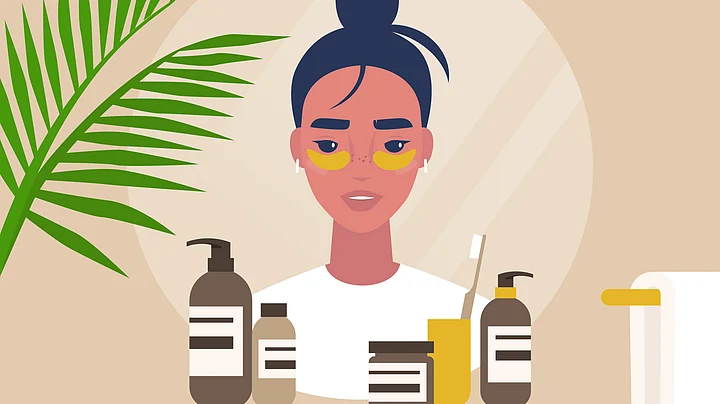It's hard to find the silver lining to the pandemic, but as far as telemedicine is concerned, the pandemic and the resulting lockdowns provided the nudge into the deep end of digitisation that they were waiting for — this includes the skin and hair industry.
Dermatology is often perceived as an elective field, more so during the pandemic.
People did not prioritize skin and hair treatments in the pandemic, barring chronic conditions like eczema, melanoma, or psoriasis.
This is when Arjun Soin, a Stanford Graduate & Digital Health researcher, decided to take the dermatology consultation experience online.
Now, looking to the future, they're asking the question, what if high quality dermatology consultations and diagnosis could be as easy as taking a personality quiz online?
Filling a Void
One reason telemedicine and the likes gained so much popularity during the pandemic was that they were filling a void of accessibility that existed even before COVID happened.
And this extends to dermatology.
"Barring hair loss and chronic skin conditions like eczema or psoriasis, skin and hair care treatments had largely fallen by the wayside during the pandemic," says Dr Guneet Bedi, a member of the Indian Association of Dermatologists (IADVL) and the head of Telehealth at Clinikally.
Adding to this, Arjun tells FIT, "Most people across the world, and especially in India, have inadequate access to dermatologists whether it is for consumer skincare, or like cancerous, more serious conditions."
On top of that, there's also the scarcity of dermatologists.
In India, there is 1 dermatologist to every 1,50,000 people.
So, to tackle these issues of accessibility, long wait-time, and physical restrictions, online consultation platforms like Clinikally took flight.
"Professions soon realised also that a lot of the conditions that they present to the clinics can be effectively tackled with a combination of telemedicine and product delivery," says Arjun.
Imagine sitting in Bhopal or Nagpur and having access to the best dermatologists in Delhi or Mumbai from the comfort of your homes.
"The idea is to democratise dermatology care by providing access to high quality dermatology care from the metros to tier 3 and 4 cities."Arjun Soin, ML Researcher and cofounder of Clinikally
How Do They Do It?
The process is quite straightforward, you fill out a detailed questionnaire of your skin type, medical history, concerns and requirements. You are then connected to a professional for a consultation session. After which you get an prescription or recommendation on how to take your skincare journey forward.
Although Clinikally carries skin and hair care products you can buy directly off their website, you can choose not to. The site essentially focuses on making teleconsultation more accessible and thorough.
"Our end-user is a patient from India who wants to go through, let's say a 5-7 minute questionnaire and be able to get a treatment line or prescription that is more suitable."Arjun Soin, ML Researcher and cofounder of Clinikally
"That questionnaire encodes learnings from previous patients history and doctors prescriptions in a qualitative fashion," adds Arjun.
Where AI Comes Into This
Currently, "There are no images involved here," says Arjun, but the goal, he says is for the patient to be able to take a 5-7 minute questionnaire, at the end of which they get a highly sophisticated treatment line that would match with what a 30 minute consult could have given them, essentially reducing wait time even further.
The idea of AI looking at an image is the future many in the dermatology industry are looking towards, but setting up the framework for that will require a lot more data sets.
"There is a huge lack of publically available datasets that are dermatologically approved, and biopsy proven."Arjun Soin, ML Researcher and co-founder of Clinikally
"You need to be able to look at if it's a pigmentation or eczema or a scoliosis, you want to make algorithms that are effective across races, across skin types and there tends to be a lot of bias in these algorithms in the skincare space right now," Arjun adds.
This is the area of research that many labs, including the one Arjun is associated with at Stanford University is working on consolidating.
(At The Quint, we question everything. Play an active role in shaping our journalism by becoming a member today.)
